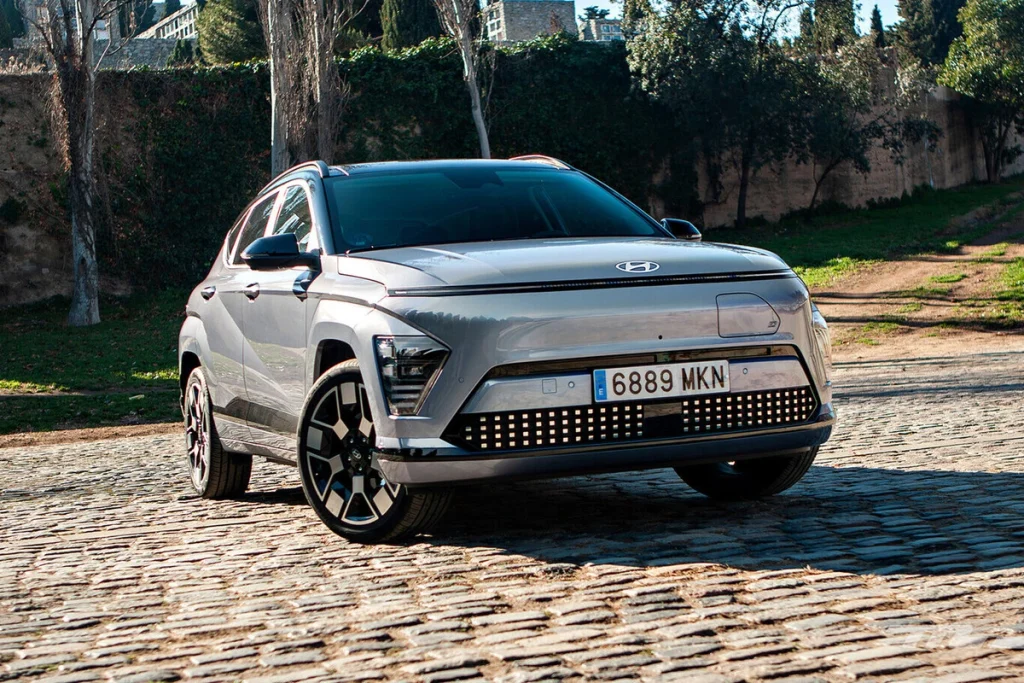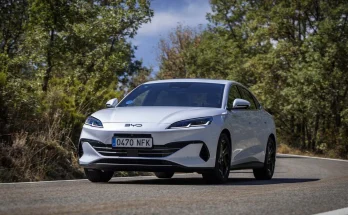Hyundai confirms the launch of extended-range electric vehicles by 2027. It promises they’ll have over 960 km of range.
Large electric cars need huge, and expensive, batteries to achieve acceptable range. Small electric cars are cheaper because their batteries are more moderate, but this means a more limited range. The Dacia Spring is a good example: it starts at just under €18,000 with a certified range of 225 km.
Whether to improve range or lower its price, one solution is a range extender: a gasoline engine acting as a generator. In China, extended-range electric cars are triumphing. And traditional brands are copying this medicine, which they have rarely used: BMW is doing the same, and now Hyundai announces that it will also launch models with this recipe.
A return to extended-range electric cars?

Hyundai has just presented its roadmap for the next five years to its investors. Among its launches will be extended-range electric vehicles (EREVs), both from Hyundai and its luxury brand Genesis. They will arrive starting in 2027. It’s not that the Korean brand is doing badly with its electric cars, but the big ones are getting more and more expensive.
Let’s remember that this type of electric vehicle combines a main electric motor with an internal combustion engine that acts as a generator. This means it doesn’t drive the wheels, but acts as a backup when the battery runs dry, generating electricity and increasing range.
Without charging, it can travel up to more than 960 km. Hyundai has provided few details about this new configuration for its electric range, which will also include battery-powered models. We don’t know if this will be for entry-level electric vehicles, smaller ones like the recently launched Hyundai Inster, or for larger, top-of-the-range models. Based on what the Korean firm has said, it seems more likely the latter, although it can’t be ruled out that they will use this system to improve the range of cheaper urban and utility vehicles.
The only thing the Korean firm is saying at the moment is that these cars “will use high-performance batteries and motors to provide driving experiences similar to those of electric vehicles” and that they will have “more than 960 km of range through optimized battery and motor integration.”
Thus, it is understood that Hyundai will use smaller batteries than in its current electric vehicles, which will make these models cheaper. “Hyundai’s approach uses high-performance internal batteries, achieving full electric power output with less than half the battery capacity, improving accessibility while maintaining exceptional range and performance and eliminating range anxiety,” they explain.
Electrics more similar to gasoline vehicles. Extended-range electric vehicles have two obvious advantages: one is to lower the price of zero-emission vehicles by using smaller, and therefore more affordable, batteries; the other is to improve the range between charges and bring them closer to gasoline or diesel vehicles, thus less dependent on the charging network. For buyers, range and price are the two most important factors, or rather obstacles, when it comes to switching to zero emissions.
At the dawn of electric vehicles, the brands that ventured into the debut of EREV cars were BMW (with the i3 REx) and General Motors (Opel Ampera, Chevrolet Volt): perhaps they arrived too early, because they failed in the attempt. 15 years later, the reality is different: affordable electric cars are needed to compete with China.
And it is precisely in China that extended-range electric cars have exploded in market share. By 2024, they will have grown by almost 80% with 1.2 million deliveries throughout the People’s Republic. They are especially popular in areas where the charging infrastructure is not as dense as in the country’s large cities. And in terms of aid or tax incentives, they are considered electric.
BMW is making a grand comeback with this technology: almost all of its future electric vehicles will be extended-range, starting with the upcoming electric BMW X5. This is not the case with Hyundai, which will debut in this configuration.
Will we see them in Europe? The German brand’s models will, as these zero-emission EREVs have been announced for its main markets. Hyundai’s models are currently only confirmed in North America. The roadmap for Europe will be revealed in the coming months, but it’s logical that they’ll also reach that side of the pond, especially given that other companies are betting on the resurrection of this technology in the West.
Find your ideal electric car
If you’ve been thinking about buying an electric car, this will interest you. We’ve created a personalized electric car recommender where, in addition to seeing the models that suit your needs, you’ll also find answers to your most pressing questions, such as price, range, and nearby charging stations.

